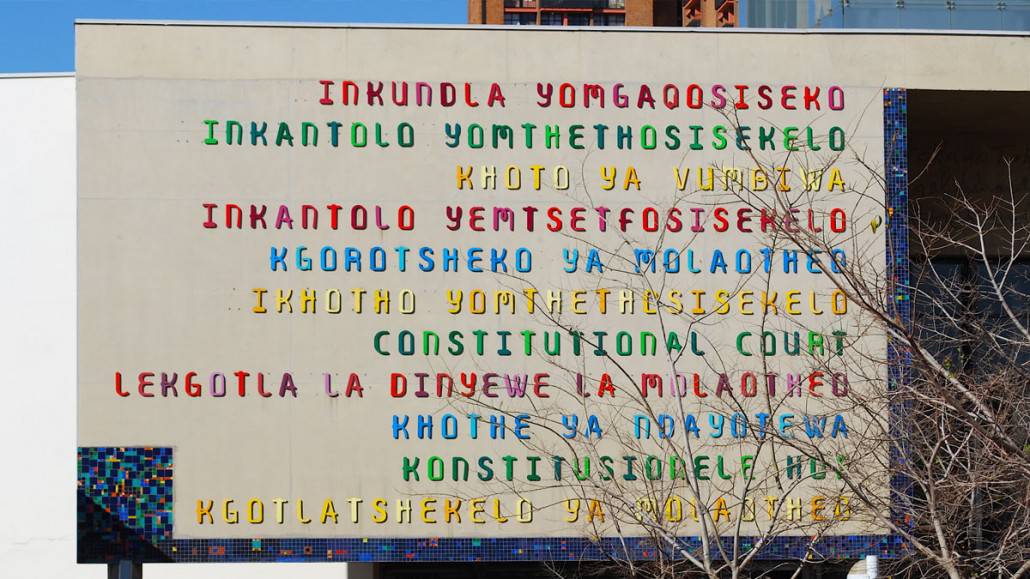President Cyril Ramaphosa did not mislead Parliament in November 2018 when he told it that Bosasa (later Africa Global Operations, AGO) made a payment of R500 000 not to his CR17 campaign for AND president, but to his son Andile for work done for Bosasa. So says the Constitutional Court, which delivered a comprehensive ruling on the matter between the president and the public protector, Advocate Busisiwe Mkhwebane, on Thursday.
The court sought to make findings on several issues in the long-awaited outcome of the legal battle over Mkhwebane’s report on Ramaphosa’s conduct in relation to the parliamentary question.
“The president was aggrieved by the findings made against him and the remedial action ordered. He instituted a review application in the high court impugning the validity of the Public Protector’s decisions, mainly on the grounds of unlawfulness and irrationality,” said Justice Chris Jafta, handing down the judgment.
Mkhwebane investigated Ramaphosa’s conduct following a formal complaint by former DA leader Mmusi Maimane. Beyond the question-and-answer incident, the public protector also probed whether a letter by Ramaphosa to then National Assembly Speaker Baleka Mbethe, in which he clarified that he was factually incorrect in his answer to Maimane, constituted a breach of Parliament’s Members Ethics Act.
In the letter, Ramaphosa said he had learned after answering the question that the payment of R500 000 was in fact towards his 2017 ANC election campaign, dubbed the CR17 campaign, and not in relation to Andile’s consultancy work with Bosasa as he had initially replied. On this basis, Mkhwebane investigated and found that Ramaphosa had misled the sitting of the National Assembly.
Reading the judgment, Justice Chris Jafta said the court found against Mkhwebane’s conclusion. “The evidence placed before the public protector did not establish a wilfulness on the part of the president when he answered the question by Mr Maimane on 6 November 2018. In fact, it appears that Mr Maimane himself was not aware that his question was factually incorrect.
“At the time the answer was given, all parties concerned thought that they were dealing with a payment to the president’s son.”
The court further held that it was incorrect for Mkhwebane to seek to alter the wording of the section of the code that applies to the matter. In the place of “wilfully” as stated in the code, Mkhwebane used the words “inadvertently” and “deliberately” to make the point of her finding. Jafta said in this regard, the high court was right to set it aside.
On the point of whether Ramaphosa had a duty to declare CR17 donations and if the public protector could competently investigate this issue, Jafta said Mkhwebane concluded that the president, in violation of the code, exposed himself to a situation involving a risk relating to conflict of his son and Africa Global Operations.
“There was no evidence supporting this finding. Instead the evidence showed that AGO donated R500 000 to the CR17 campaign. This cannot, by any stretch of it, be interpreted to mean that the president used his position to enrich himself or his son through AGO. Both the president and his son knew nothing about the donation.”
Jafta said on the issue of Mkhwebane’s competence to investigate the affairs of the CR17 campaign, over which she and the EFF argued that the high court erred in concluding that she had no jurisdiction, the public protector contended that the source of her powers is Section 182 of the Constitution, together with Section 6 of the Public Protector Act. The EFF, on the other hand, submitted that internal party elections constituted state affairs because they are a step towards legislative bodies.
“There is no merit in the argument advanced by both parties. Both the Constitution and the Public Protector Act do not empower the public protector to investigate private affairs of political parties. Political parties do not perform a public function or exercise a public power when they conduct internal elections. Theirs is an internal affair and not a state affair.”
Mkhwebane’s further finding that there were grounds to investigate money laundering in respect of the donation – on the basis that it moved across several intermediaries – had no evidence to support it, said Jafta.
He added that Ramaphosa’s complaint in his review application of Mkhwebane’s report, that he was not provided an opportunity to make presentations against her remedial action, was valid. Mkhwebane had argued that the Public Protector Act together with Section 182 of the Constitution, only obliged her to give such opportunity in the investigation phase and not the advanced one of an interim report, as Ramaphosa said he was entitled to.
“On a proper reading of Section 7.9, we concluded that a person against whom remedial action is taken is entitled to be heard on the proposed remedial action. We also held that the public protector had no authority to make the remedial action she had issued against the speaker of the National Assembly, the national director of public prosecutions, and the national commissioner of police,” said Jafta.

